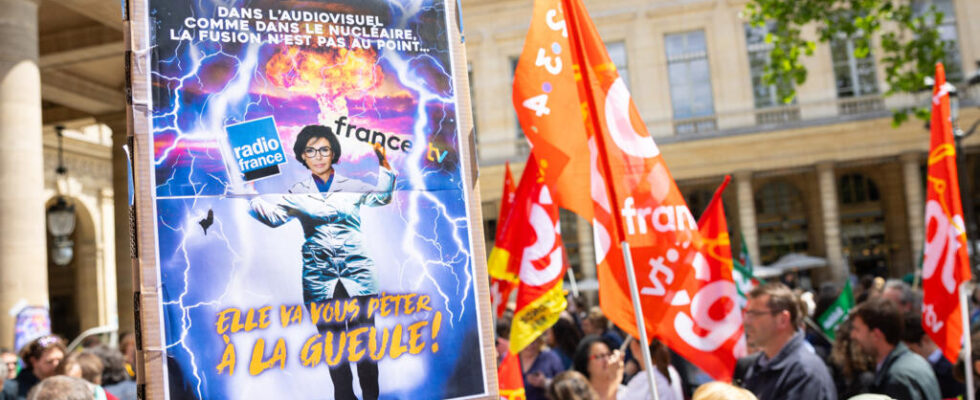In France, the strike in the public broadcasting sector ended on Friday May 24, after two days of strong mobilization against a merger project which will be debated in June.
Strike which affected public broadcasting led to major disruptions, in particular at Radio France where on Thursday, a third of employees and 55% of journalists, according to management, stopped working. It is also from Radio France that a column signed in The world by 1,400 group employees, including big names from France Inter such as Nicolas Demorand and Léa Salamé. An even stronger mobilization than at France Télévisions, where the management had 12% of strikers, because it is of course public radio that we have the most to fear from a merger with something bigger than us. Even if the majority assures that the harmonization of salaries will benefit Radio France, the fear is of course that this will lead to job reductions and a reduction in resources.
And what justifies this merger project?
According to Rachida Dati, the Minister of Culture, it is first and foremost a “ risk of weakening » in the face of major platforms and social networks, knowing that the average age of the France Télévisions viewer, she says, is 64 years old while that of the Radio France listener is 57 years old. It is therefore necessary, for her, to put an end to a dispersed audiovisual system and to go further in bringing together digital technology, information and proximity. However, the unions point out the lack of editorial coherence of this project even though the audiences are good and the digital transition is rather well underway. In fact, they also point out a risk of weakening public broadcasting if we come to confuse the professions and if a super-boss with full powers threatens the independence of the different entities.
And what about France Médias Monde, the parent company of RFI and France 24?
In principle, the group is included in the merger project which takes up a Lafon law proposal from the Senate. But the Minister of Foreign Affairs, Stéphane Séjourné, clarified that an arbitration had been rendered and that France Media World, which has its own problems, had been excluded. End of the story ? Not entirely, because the government needs LR votes to pass its reform through the Assembly. And right-wing elected officials want a global merger including international media on the model of the BBC, which reduced its budget by 10% in three years. In any case, financing must be specified. A levy on state budget revenues is announced. But in this case, why have removed the fee ? On the left, we criticize a weakening by financing then a desire to take control accelerated by a merger on January 1, 2026.
Also read or listenMerger of public broadcasting in France: “This reform reflects a temptation to take control of power”
